Education →
→

- 12 Mar 2024
- Research & Ideas
Publish or Perish: What the Research Says About Productivity in Academia
Universities tend to evaluate professors based on their research output, but does that measure reflect the realities of higher ed? A study of 4,300 professors by Kyle Myers, Karim Lakhani, and colleagues probes the time demands, risk appetite, and compensation of faculty.

- 25 Jan 2024
- Research & Ideas
Being a Team Player: Why College Athletes Succeed in Business
Forget rocks for jocks. A study by Paul Gompers of more than 400,000 Ivy League athletes probes how the rigors of college sports can help people climb the corporate ladder faster and into higher-paying positions.

- 19 Dec 2023
- Research & Ideas
$15 Billion in Five Years: What Data Tells Us About MacKenzie Scott’s Philanthropy
Scott's hands-off approach and unparalleled pace—helping almost 2,000 organizations and counting—has upended the status quo in philanthropy. While her donations might seem scattershot, an analysis of five years of data by Matthew Lee, Brian Trelstad, and Ethan Tran highlights clear trends and an emerging strategy.
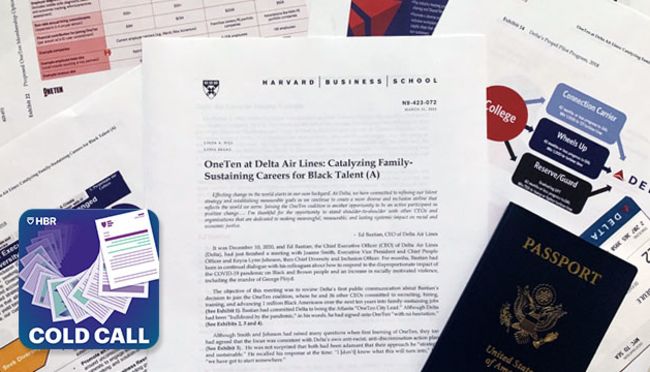
- 21 Nov 2023
- Cold Call Podcast
Cold Call: Building a More Equitable Culture at Delta Air Lines
In December 2020 Delta Air Lines CEO Ed Bastian and his leadership team were reviewing the decision to join the OneTen coalition, where he and 36 other CEOs committed to recruiting, hiring, training, and advancing one million Black Americans over the next ten years into family-sustaining jobs. But, how do you ensure everyone has equal access to opportunity within an organization? Professor Linda Hill discusses Delta’s decision and its progress in embedding a culture of diversity, equity, and inclusion in her case, “OneTen at Delta Air Lines: Catalyzing Family-Sustaining Careers for Black Talent.”

- 16 Oct 2023
- HBS Case
Advancing Black Talent: From the Flight Ramp to 'Family-Sustaining' Careers at Delta
By emphasizing skills and expanding professional development opportunities, the airline is making strides toward recruiting and advancing Black employees. Case studies by Linda Hill offer an inside look at how Delta CEO Ed Bastian is creating a more equitable company and a stronger talent pipeline.

- 26 Jul 2023
- Research & Ideas
STEM Needs More Women. Recruiters Often Keep Them Out
Tech companies and programs turn to recruiters to find top-notch candidates, but gender bias can creep in long before women even apply, according to research by Jacqueline Ng Lane and colleagues. She highlights several tactics to make the process more equitable.

- 14 Jun 2023
- Research & Ideas
Four Steps to Building the Psychological Safety That High-Performing Teams Need
Struggling to spark strategic risk-taking and creative thinking? In the post-pandemic workplace, teams need psychological safety more than ever, and a new analysis by Amy Edmondson highlights the best ways to nurture it.
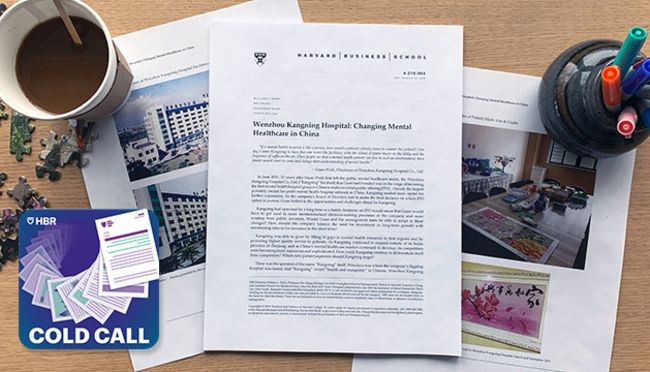
- 23 May 2023
- Cold Call Podcast
The Entrepreneurial Journey of China’s First Private Mental Health Hospital
The city of Wenzhou in southeastern China is home to the country’s largest privately owned mental health hospital group, the Wenzhou Kangning Hospital Co, Ltd. It’s an example of the extraordinary entrepreneurship happening in China’s healthcare space. But after its successful initial public offering (IPO), how will the hospital grow in the future? Harvard Professor of China Studies William C. Kirby highlights the challenges of China’s mental health sector and the means company founder Guan Weili employed to address them in his case, Wenzhou Kangning Hospital: Changing Mental Healthcare in China.

- 28 Feb 2023
- Research & Ideas
Can Apprenticeships Work in the US? Employers Seeking New Talent Pipelines Take Note
What if the conventional college-and-internship route doesn't give future employees the skills they need to build tomorrow's companies? Research by Joseph Fuller and colleagues illustrates the advantages that apprenticeships can provide to employees and young talent.

- 15 Aug 2022
- Book
University of the Future: Finding the Next World Leaders in Higher Ed
Which universities will step into the void as American colleges decline? In the book Empires of Ideas, William Kirby explores how the history of higher education in the US, China, and Germany might shape its future.

- 11 Aug 2022
- Research & Ideas
When Parents Tell Kids to ‘Work Hard,’ Do They Send the Wrong Message?
It takes more than grit to succeed in a world rife with systemic inequity. So why don't we tell children that? Research by Ashley Whillans and colleagues shows how honest talk about social barriers could empower kids to break them down.

- 02 May 2022
- What Do You Think?
Can the Case Method Survive Another Hundred Years?
The case method pioneered by Harvard Business School has weathered a hundred years of controversy and criticism. However, is the approach the best way to teach people to lead in a world that demands more agility and adaptability? James Heskett asks. Open for comment; 0 Comments.

- 18 Nov 2021
- Op-Ed
5 Principles for Scaling Change from IBM’s High School Innovation
P-TECH has bolstered graduation rates for students of color while creating a new tech hiring pipeline. Rosabeth Moss Kanter and program architect Stanley Litow discuss the social impact lessons for other organizations. Open for comment; 0 Comments.

- 09 Aug 2021
- Research & Ideas
OneTen: Creating a New Pathway for Black Talent
A new organization aims to help 1 million Black Americans launch careers in the next decade, expanding the talent pool. Rawi E. Abdelal, Katherine Connolly Baden, and Boris Groysberg explain how. Open for comment; 0 Comments.

- 19 May 2021
- Op-Ed
Why America Needs a Better Bridge Between School and Career
As the COVID-19 pandemic wanes, America faces a critical opportunity to close gaps that leave many workers behind, say Joseph Fuller and Rachel Lipson. What will it take? Open for comment; 0 Comments.
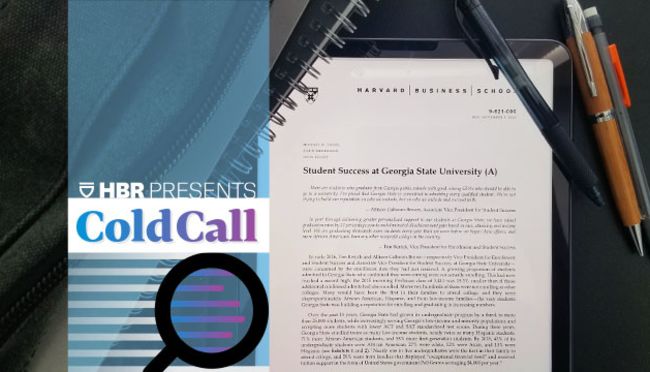
- 18 May 2021
- Cold Call Podcast
How Georgia State University Increased Graduation Rates
Georgia State University was facing a growing "summer melt" problem, where nearly 20 percent of incoming students never actually enrolled. The university used a data-based approach to retain students of all racial, ethnic, and socioeconomic backgrounds and help them graduate. Professor Mike Toffel> and Harvard Advanced Leadership Initiative fellow Robin Mendelson discuss what the university learned about improving student success, while scaling its efforts to help other universities, in their case, “Student Success at Georgia State University.” Open for comment; 0 Comments.

- 13 Apr 2021
- Working Paper Summaries
Population Interference in Panel Experiments
In panel experiments, units are exposed to different interventions over time. This article introduces a unifying framework for studying panel experiments with population interference, in which a treatment assigned to one experimental unit affects another experimental unit's outcome. Findings have implications for fields as diverse as education, economics, and public health.
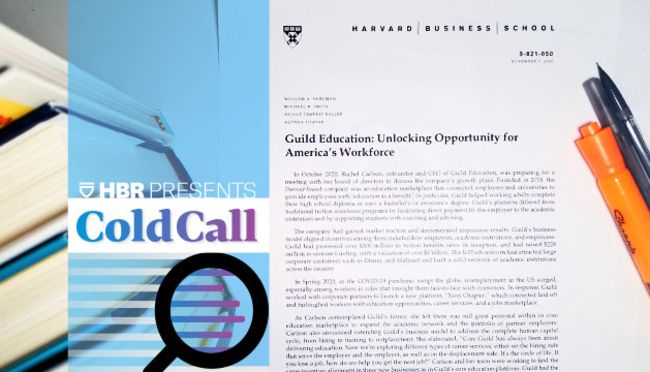
- 23 Mar 2021
- Cold Call Podcast
Managing Future Growth at an Innovative Workforce Education Startup
Guild Education is an education marketplace that connects employers and universities to provide employees with “education as a benefit.” Now CEO and co-founder Rachel Carlson must decide how to manage the company’s future growth. Professor Bill Sahlman discusses this unique startup and Carlson’s plans for its growth in his case, “Guild Education: Unlocking Opportunity for America's Workforce.” Open for comment; 0 Comments.
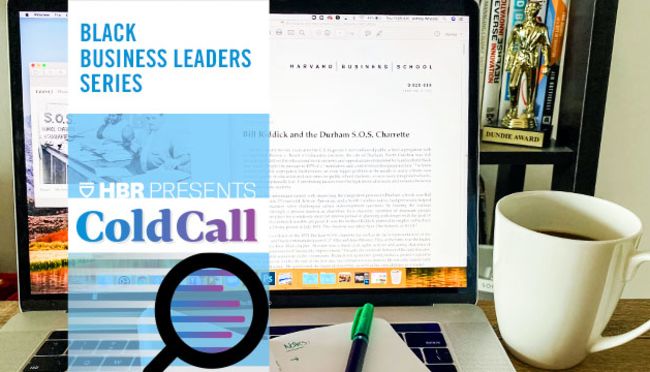
- 02 Feb 2021
- Cold Call Podcast
Using Empathy and Curiosity to Overcome Differences
Bill Riddick, an African-American community leader and counselor, must find a way to bridge the divide between Black and white community leaders, who are on opposing sides of school integration in Durham, North Carolina, in 1971. Harvard Business School professor Francesca Gino and Jeffrey Huizinga explain how empathy and curiosity can foster understanding in divisive situations in their case, “Bill Riddick and the Durham S.O.S. Charrette.” Open for comment; 0 Comments.

How Humans Outshine AI in Adapting to Change
Could artificial intelligence systems eventually perform surgeries or fly planes? First, AI will have to learn to navigate shifting conditions as well as people do. Julian De Freitas and colleagues pit humans against machines in a video game to study AI's current limits and mine insights for the real world.